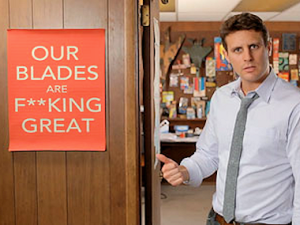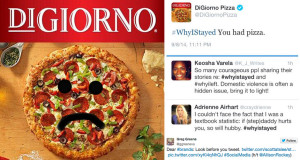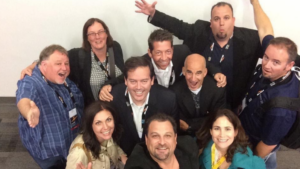Looking for a way to engage your customers in an impactful way? Well, it doesn’t always take a big-budget ad campaign to grab your audience’s attention. Sometimes, it’s a well-timed joke that could make all the difference in having your 
According to a recent marketing study by the textbook rental service Chegg, almost 80 % of college-age kids remember ads that make them laugh. And this phenomenon is not limited to just millennials, as Nielsen recently ranked some of the most memorable Super Bowls in the past four years.
The advertiser that topped the list? Doritos is a brand largely known for its absurdist commercials.
Defining what’s Funny
So with humor being such a strong building block for any effective campaign, how do you define what is funny? Comedy is largely subjective. Obviously, what’s funny to an 18-year-old might not appeal to a baby boomer. So knowing your audience is essential to having your message received in the way that is intended.
Much of this can be attributed to research. That means, paying attention to trends and cues that directly affect both your brand and your core customers. But beyond this, there are a few rules every smart marketer should consider when incorporating humor in their campaigns.
Be careful with controversial topics: Sometimes, it’s best to leave the potential edgy issues and language in the comedy clubs. While joking about such things may gain attention your brand-it may not be the type that your company executives are looking for.
The best humor in marketing comes naturally: People generally know when humor is forced or seemed manufactured.
Be relatable: The best comedy comes from building relationships based on shared experiences. So don’t be afraid to create content around common occurrences in everyday life.
Don’t be afraid to poke fun at yourself (and your fans): People respond when you show that you can let your hair down sometimes. It humanizes your brand and makes others more likely to trust you.
Keep it simple: Unless you are producing content for a very specific audience (such as doctors, lawyers, etc.), avoid using jargon or confusing setups. If the ad has to be explained to be funny, then it’s not as effective.
The Dollar Shave Club was started in 2011 after two of its co-founders, Mark Levine and Michael Dubin, found themselves commiserating at a party over the cost of razor blades. Soon afte
But how does a relatively small business in the estimated $13 billion shave industry get attention? Especially when they don’t have the massive marketing budgets of competitors like Gillette and Bic.
They do it by producing hilarious viral videos and commercials starring their company’s CEO. Their first YouTube, entitled “Our Blades Are F***ing Great”, has been viewed over 20 million times since its original posting in 2012. Even more impressive?
The video generated 12,000 orders within two days of being online. So why are the ads so effective? Mainly because the set-up premises are relatable and easy to understand. They are edgy in a way that is consistent with the brand identity. And the fact that their CEO is willing to make fun of both his industry and himself doesn’t hurt.
When Humor Fails: DiGiorno Not every attempt at incorporating comedy in marketing succeeds. One of the biggest examples of a major faux-pas was when the popular pizza brand, DiGiorno, decided to bring levity to a trending topic on Twitter called #whyistayed.
The original intent of the online discussion was to give a face to the millions of people worldwide who found themselves staying in abusive domestic relationships.
However, perhaps not understanding why the hashtag was being shared, Digiorno decided to tweet an ill-advised response indicating that a person remained in the volatile situation because the abuser had pizza.
Unfortunately for DiGiorno, the backlash came quickly-causing them to quickly delete the offensive tweet while expressing their apologies. And while the company has come a long way in making amends, its failure to thoroughly research its message serves as a warning for all brands.f
Key Takeaway:
Humor in marketing can be an effective tool if used responsibly. Marketers looking to make comedy part of their message must first understand their target audience. Businesses must also be willing to make their content relatable, fun, and simple. Try to avoid controversial topics and be ready to poke fun at yourself.






